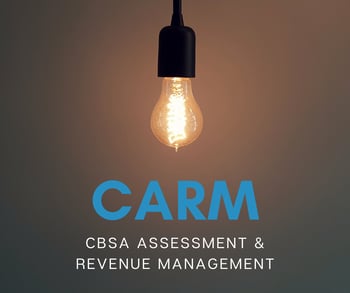CARM Simplified: Step #2 - Delegation
Cole’s easy-does-it guide to making the transition to CARM
The first post in our CARM Simplified series gave you an Overview of CARM, the CBSA Assessment and Revenue Management project. The second post dug into financial security and how to get set up with a surety bond.
This week, we’ll tackle delegation.
Our next blog will cover the ins and outs of registering and working within the CARM Client Portal (CCP).
What is delegation?
For many importers, one of the most challenging aspects of CARM is the requirement to assume some of the tasks and functions that your customs broker traditionally provided. It’s true: some aspects of this shift to CARM mandate your business to take on some processes. This will require a change to some of your internal workflows.
The delegation process will allow you to assign access to certain functions within the CARM Client Portal (CCP) to your customs broker (or other third parties). This will allow them to manage those functions on your behalf.
You’ll need to be both intentional and specific about to whom you delegate authority under CARM, and to what extent these folks have visibility and access to your import accounts within the Portal.
Delegation happens offline first
While there is an aspect of delegation that takes place within the portal itself, the thinking and strategizing happens offline.
Who are the internal stakeholders who will need access to your CARM Client Portal? Which level of visibility and access does each of these people require?
Who are the third-party service providers, such as your broker, who will need access to your import accounts within CARM? At which level(s) of visibility and access?
Internal delegation under CARM
Internal delegation entails assigning CARM Client Portal (CCP) roles to your internal employees. There is no limit to the number of roles assigned; they can be changed or expired at any time.
BAM (Business Account Manager)
The most important role to assign internally is that of the BAM (Business Account Manager). Make sure you have a minimum of two BAMs—it is essential to have back-ups.
The BAM has the highest level of visibility and access in the CCP, and will serve to set up your business account and all other relevant accounts and roles under CARM.
The BAM operates at the BN9 or enterprise level. The BAM will manage multiple program accounts (RMs).
PAM (Program Account Manager)
The next level of delegation is the Program Account Manager(s) (PAM), who manages your import programs at the RM level.
Editor
This role can perform operational activities in the program assigned.
Reader
This role can view operational activities in the program assigned.
Watch CBSA’s video tutorial on delegating authority to an employee in the CCP.
External delegation under CARM
Once you’ve figured out the BAM and PAM levels of internal delegation, you’re able to see clearly which of your external stakeholders, like your customs broker and other third parties, need access to import programs inside the CCP.
You’ll need to decide which import programs to delegate access to—and decide which level of access is appropriate for each service provider.
Watch CBSA's video on delegating authority to third parties in the CCP.
Next week we’ll cover how to register and work within the online CARM environment (CCP or CARM Client Portal). So, if you don’t feel confident doing the online portion of the delegation process yet, don’t worry.
We’ll walk you through how to navigate within the CARM portal environment and share several video tutorials to support you step-by-step in the process.
In the meantime, get started on the offline part of the process.
Need more support?
We’re ready to help!

